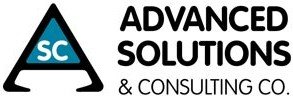Whether you’re making the product, housing and transporting it, or selling to your customers, you’re dealing with a lot of moving parts. Manufacturers need to schedule resources. Distributors need to connect warehouses and track products. Retailers need to manage locations, work with customers, and often connect their in-store operations with an online storefront.
These are complex needs, requiring the right solutions to manage each. Manufacturers might turn to MRP or light manufacturing, distributors probably need to turn to warehouse, inventory, and order management. Retailers need much of the same, but often need to add front-end products to supplement this.
Fundamentals Matter
But as important as each of these solutions are—and as important as they are to optimize your operations, that’s what they do, optimize your operations.
Take a second to think back to your youth. Whether you grew up playing baseball, hockey, or any other sport, it’s likely you dreamt of the days that you’d be making spectacular plays. A diving stop at shortstop. A one-timer from the point. You saw the pros doing it and wanted to be like them.
It’s also likely that your coach chastised you for focusing on the end goal when you still couldn’t handle the fundamentals. When you were trying to make jump throws or dekes, you still needed to know how to get down to handle a ground ball or take the pass without it flipping over your stick.
In the same way, there are a lot of companies out there trying to give you all the frills—with no fundamentals. For ERP, this could result in extra costs with few benefits. The best order management solution is great, but if it’s making life harder for purchasing and payment or sales and receivables, it’s not delivering a complete solution.
Financial Management: The Backbone of Any Business Management Solution
A system can offer all the bells and whistles you need to do the job, but if it’s not providing a real financial backbone, you’re not going to benefit. For product-based businesses, the financial management part of the equation is going to work with any ‘optimization’ solutions.
For example, General Ledger will integrate with accounts payable—accounts payable will integrate with purchasing. It will also integrate with accounts receivable and cash management—two solutions that connect with additional products.
The Basics of Financial Management
As the backbone of your entire business management solution, financial management needs to handle the day to day, month to month, quarter to quarter, and year to year activities. It needs to deliver the right information to the right decision makers—and it needs to be the hub through which all information flows. This kind of solution needs to provide a full suite of products built for financial and managerial accounting, helping people to report, budget, plan, track, and more.
To get the best experience, look for a solution that connects a variety of functions and ensures that the fundamentals are ready to work with the advanced functionality. Integration is key here, and the right platform will make the following work with the rest of your business management solution:
- General Ledger: The backbone of the backbone, General Ledger is the hub of all financial activities. Functionality in GL is pivotal and is needed to generate financial statements and account for transactions.
- Accounts Receivable: Getting paid matters, and accounts receivable is the way to track this. Look for a solution that’s ready to connect with other functions in your sales cycle to track and report on balances owed to you.
- Accounts Payable: Get the most out of your purchasing. Accounts payable helps you to optimize the payments owed to others, helping you to secure discounts and optimize payments.
- Cash Management: Handle the way things flow at your company. Cash management needs to connect with General Ledger, Accounts Payable, and Accounts Receivable, to enable reporting and control over accounts.
- Tax Management: Keep track of taxes owed and minimize the risk of IRS audits. The right tax management is built to connect, automating tasks involved with configuring, collecting, managing, and reporting tax.
- Reporting: Gain greater insights into your organization with self-service tools that connect financial management with a variety of other modules, providing you easy access to reports. Reporting goes beyond just the balance sheet and cash flow statements. To get the full benefit of an ERP system, you need to see the health of your company at a glance. Spot trends and act on them with ease.
Beyond the Basics: Handling the Day-to-Day Challenges of Your Growing Business
Sometimes, your financial management functionality needs to go beyond the basics. For example, currency management is key to international business, recurring revenue facilitates service contracts and repeat shipments, and fixed assets keep your facilities running smoothly.
Though still a key part of the solution, it pays to find a product that can offer the following to handle your specific needs:
- Bank Feeds: A financial management platform unable to work with your bank is a system that can’t work for you. Add bank feed software to link savings, checking, and corporate credit card accounts to cash and expense accounts.
- Currency Management: Another optional feature, this is a necessity for the global business. Currency management makes it easy to manage international transactions and make the most of volatile currencies.
- Intercompany Accounting: Keep track of your growing and diversifying business without feeling the pain of managing it. Intercompany accounting and reconciliation directs financial reporting, payments, cash management, and inter-entity transfers among multiple entities.
- Deferred Revenue: Automate deferred revenue calculations by assigning a schedule to any affected transaction line item or inventory component.
- Recurring Revenue: If your business relies on subscriptions, you need to be able to easily handle recurring billing and maximize revenue opportunities through improved cash flow, billing accuracy. Overcome expirations and stay connected with customers to maximize renewals.
- Fixed Assets: Maintain complete visibility of fixed assets and depreciation calculations. This solution is key to handling depreciation and tax schedules to keep control over liabilities.
But Never Forget Integration
The fundamentals matter, but if you ever intend to go pro, you can’t forget the additional skills needed to get there. The above-mentioned products can’t exist in a silo—they need to connect with the rest of your business. Integration matters, and this requires a platform built to connect and manage processes.
The Right ERP Partner Matters
Sports prodigies, like ERP customers, aren’t going to make everything work without the right help. From the fundamentals to the advanced needs, you’re going to need to find someone to help you set up the solution to work for you.
Advanced Solutions & Consulting Co. is an MVP VAR and an MVP Developer with offices in Southern California, San Francisco, and Chicago. Our team of ERP experts implements Acumatica and Acumatica ISV solutions designed to optimize business processes and give you the most from modern technologies.
Whether it’s implementation or development, when you work with ASC, you’re leveraging the collective experience of a team who brings 23 years of results and more then 350 implementation projects. Don’t wait any longer. To learn more about how Acumatica can help your business, schedule a free consultation or give us a call at (858) 755-9200.
Additional Resources
Benefits to Financial Teams for Embracing Technology
How Data Mining Aids in the Process of Tax Audits
Financial Planning and Analysis (FP&A) – Leave Your Aging, Non-Integrated Systems Behind

